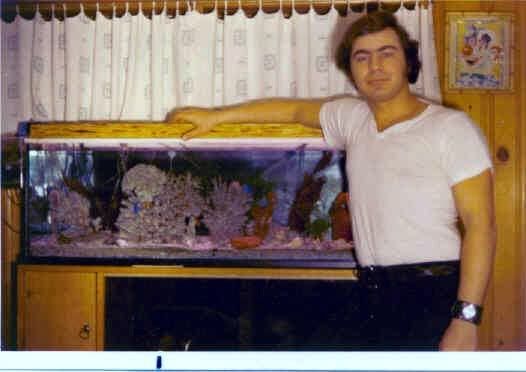Brandon, I am not sure if I agree with your last post. I agree that almost everyone seems to think water changes will promote tank longivity, I say almost because I don't think it is the main thing or even near the top of the list. Of course we need to change water but I can only go by my tank and my bioload. My 40 year old tank has never experienced Old Tank Syndrome and I change very little water, only 20% about 5 or 6 times a year.
I also do not run a DSB as I feel they have a much too short lifespan for someone like me with a lifelong hobby. I want my tank to last as long as I do.
I really can't say why my tank has lasted but I do know that it can not be from a DSB or many water changes.
My bioload is also a little high, I have about 25 fish in this 100 gallon tank along with corals and a bunch of ten year old hermit crabs.
Many of the fish are spawning so I usually feed a lot to them. Also I don't use much "regular" aquarium foods, I go for fish eggs, some clams, live worms and some plankton/mysis. My nitrates are very low but I do add some bacteria from the sea which I believe is very important.
I also think my RUGF will last forever with no chance of crashing and very little maintenance a few times a year.
So to sum it up, yes, there are too many variables, my tank may be an anomely and maybe it can't be replicated, I don't know.
But I do know that whatever system you are using, should eliminate all of your nitrates without relying on water changes. Water changes are needed to replace trace elements and remove things not converted by bacteria but your bacteria should be removing nitrates if not, they are not working and something is wrong



